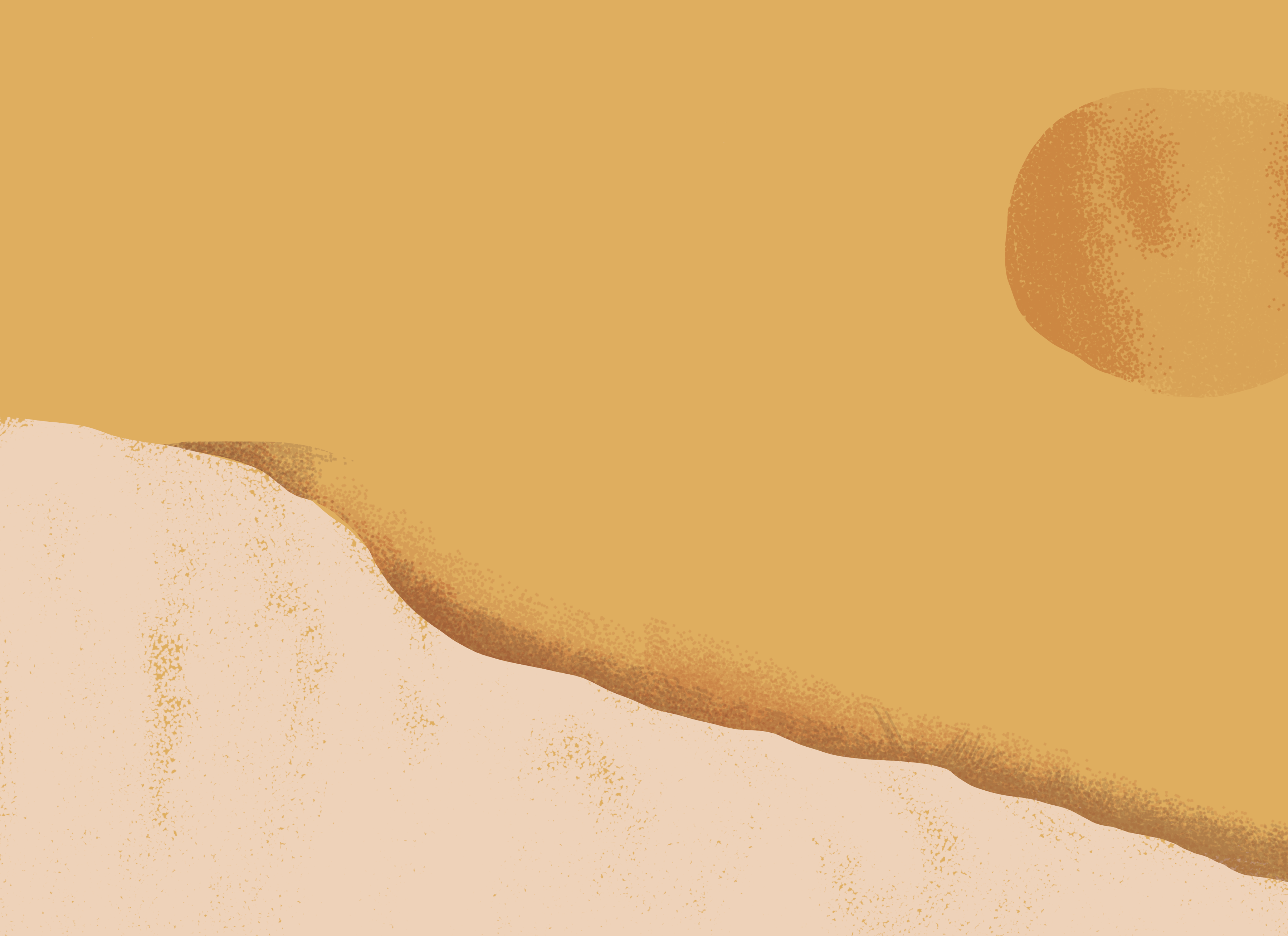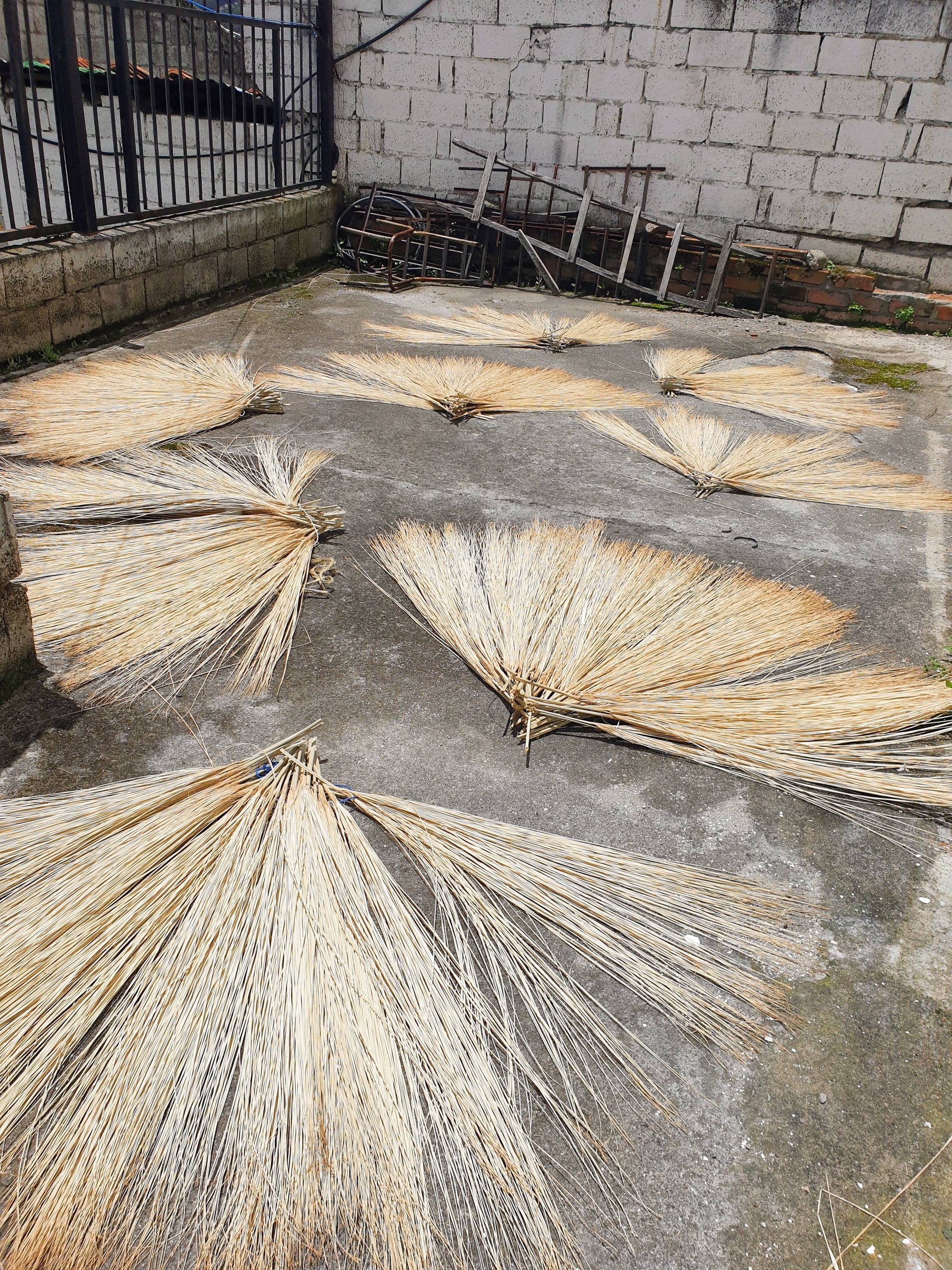
Main Materials
What is a Shigra?
Shigra is a Kichwa term given to an object widely used by the indigenous women as a personal bag, to carry the cucayo,* or to collect and preserve seeds.
* food taken for a trip, provisions
CABUYA FIBER
The raw material for the shigras production comes from the plant called cabuya, a cactus similar to the penco or agave widely known in other Latin-American countries; however, the cabuya is a specific variety that is endemic from Ecuador.
Cabuya leaves are collected from a remote region in the heart of the Andes called Intag in the province of Imbabura. The leaves are whipped and crushed using machinery to extract all their chlorophyll.
After this process, they are left in pure water for several days to then be washed and boiled with dyes at high temperatures to give them their bright colors. The fibers are left to dry in the open air and afterwards are combed to finally be delivered to the weaving craftswomen.
The creative process then starts and is when the women start combining colors, allowing us to see their creativity through their designs inspired by nature. Some may be abstract, others geometric. Some women even prefer to weave their names or even represent their family and their environment.
Each shigra is needle-woven by a single woman. The process of design and color matching can take between 4 to 6 weeks.
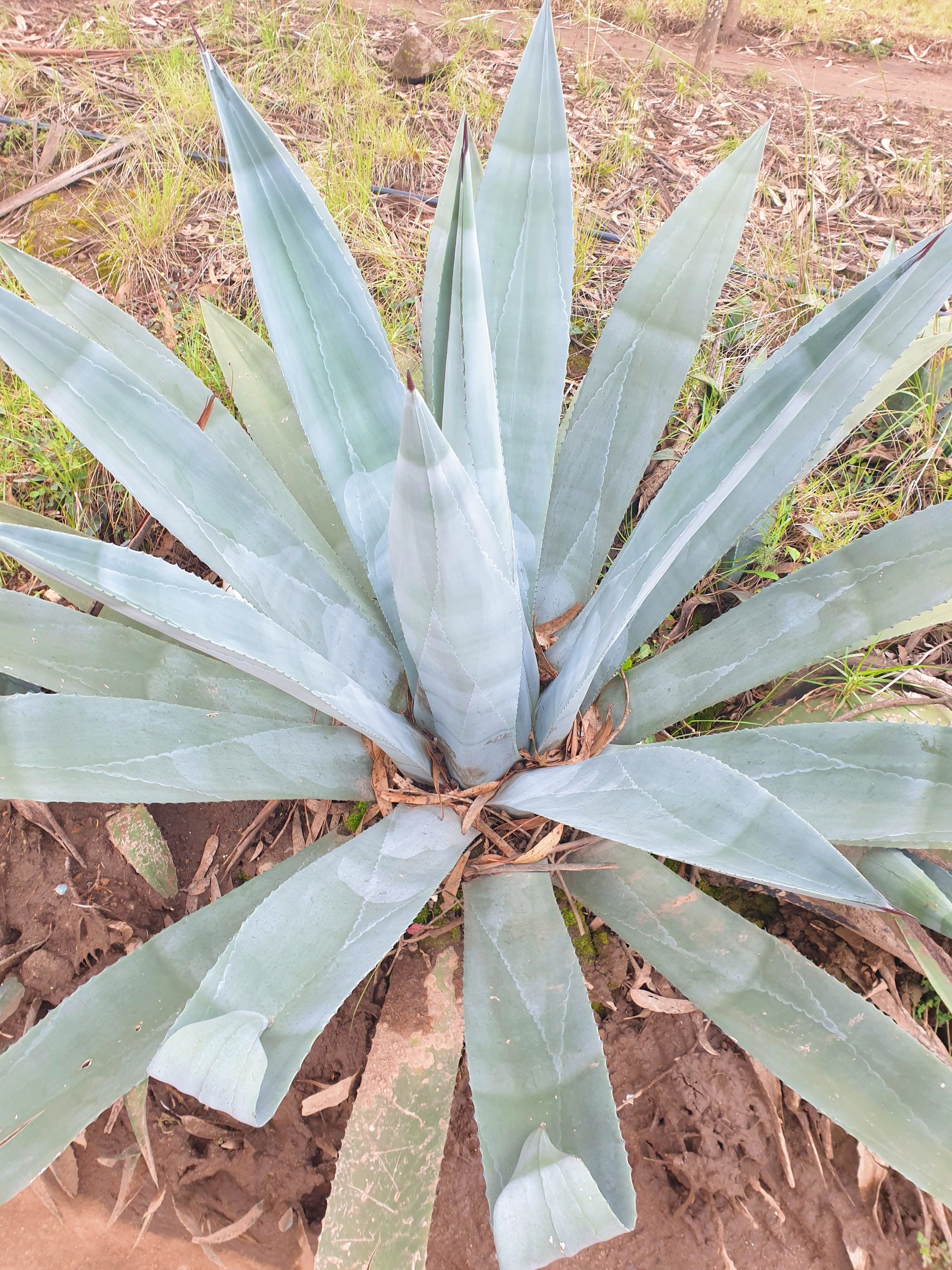
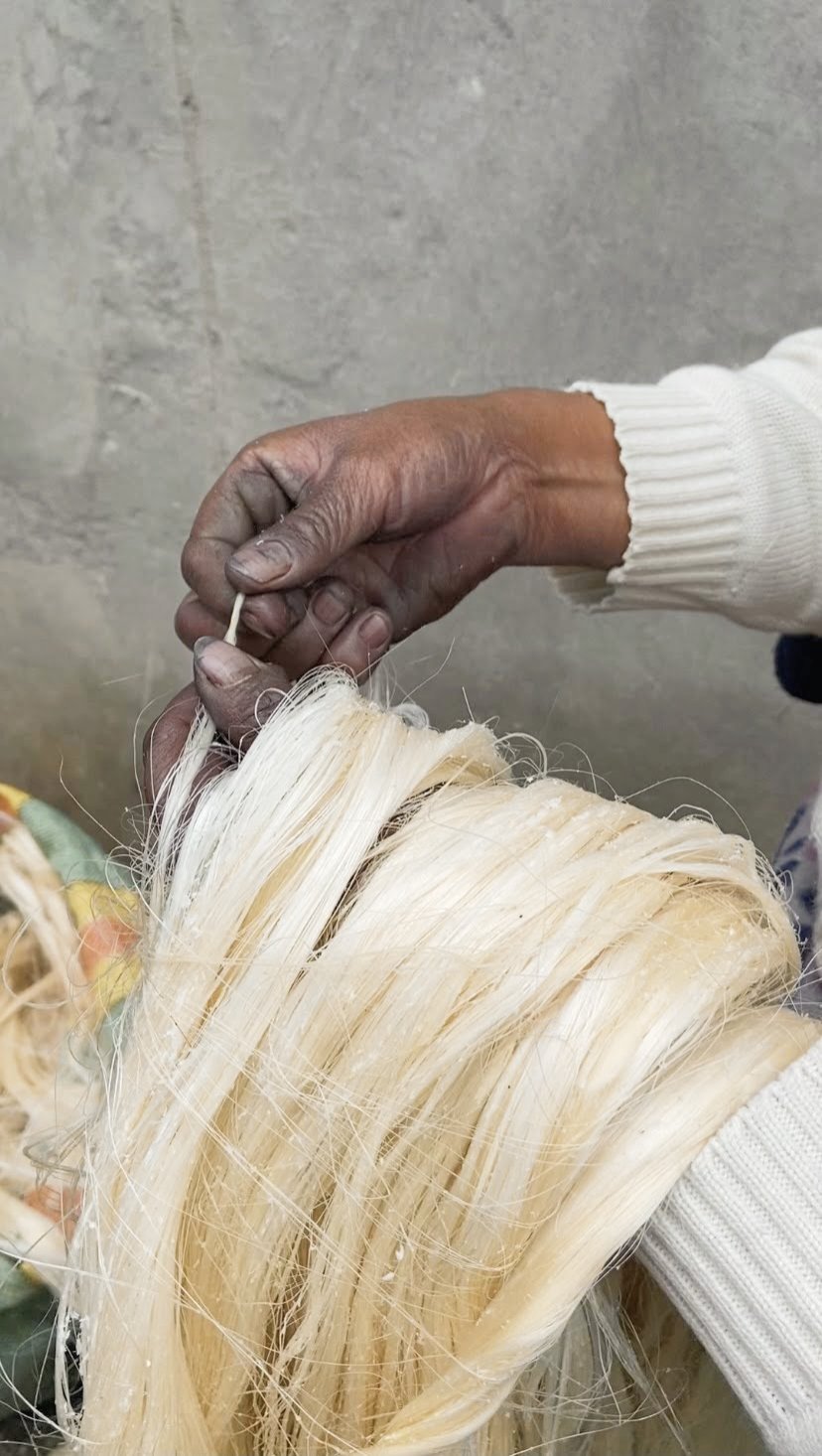
TOQUILLA STRAW
The raw material of our Decorative Baskets comes from the Carludovica Palmata plant known as toquilla, jipi japa or iraca palm; it is a specific variety of palm that grows on the Ecuadorian coast.
We only use the tender stems, which are processed in an artisanal way to obtain a soft, flexible and very resistant fibre.
The best toquilla straw buds travel from the Coast to the Austro in bales that are delivered to the women of the cooperative, who meticulously classify and check each fibre that will go through a long process in which they are beaten and boiled to remove all the chlorophyll.
Once bleached of their natural colour they are washed several times until they are as clean as possible and then they are smoked* in a wooden box in the most typical style of a drawer bath.
The straw is hung up on wooden slats, and three times the straw is sahumed with sulphur, which generates a vapours that permeates the straw, bleaching it and softening it.
A few hours later they are removed from the box and taken to be dyed in pots, which are boiled at high temperatures until the desired colour is achieved.
At this point they are left to dry in the open air, two weeks of processing the toquilla straw may have passed and it is only at this point that we have the fibre ready as a viable material for weaving.
Each basket is made with crochet by a single woman, which can take between 2 to 3 days depending on the design work, the colour combination and the type of weaving stitch used.
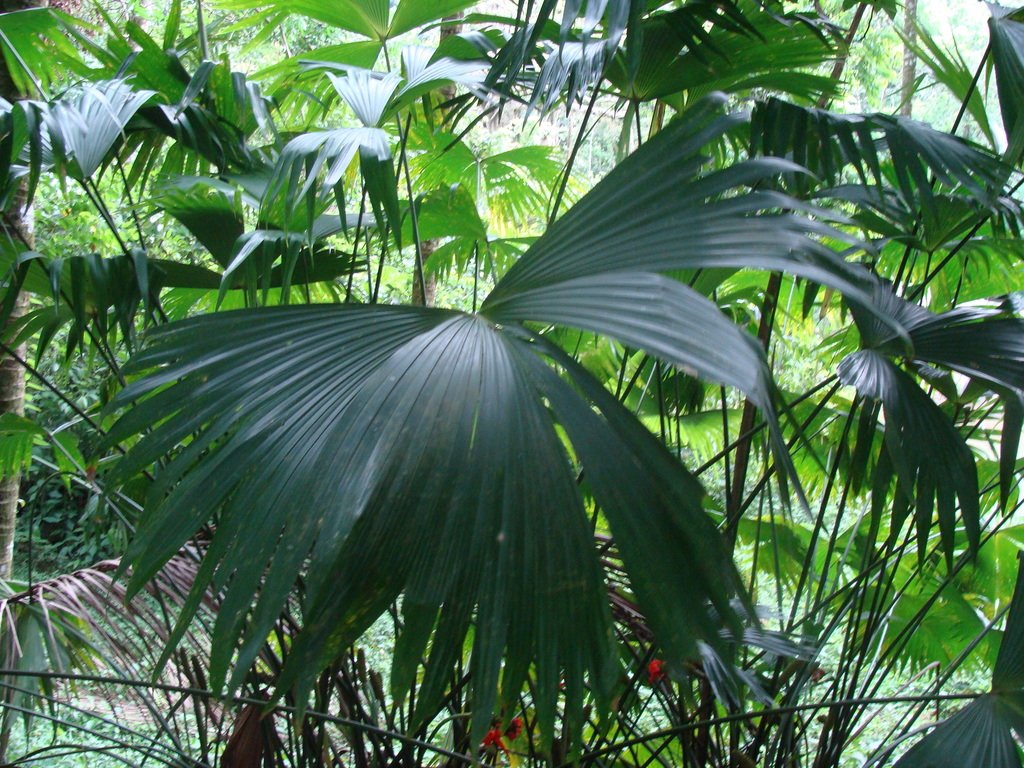
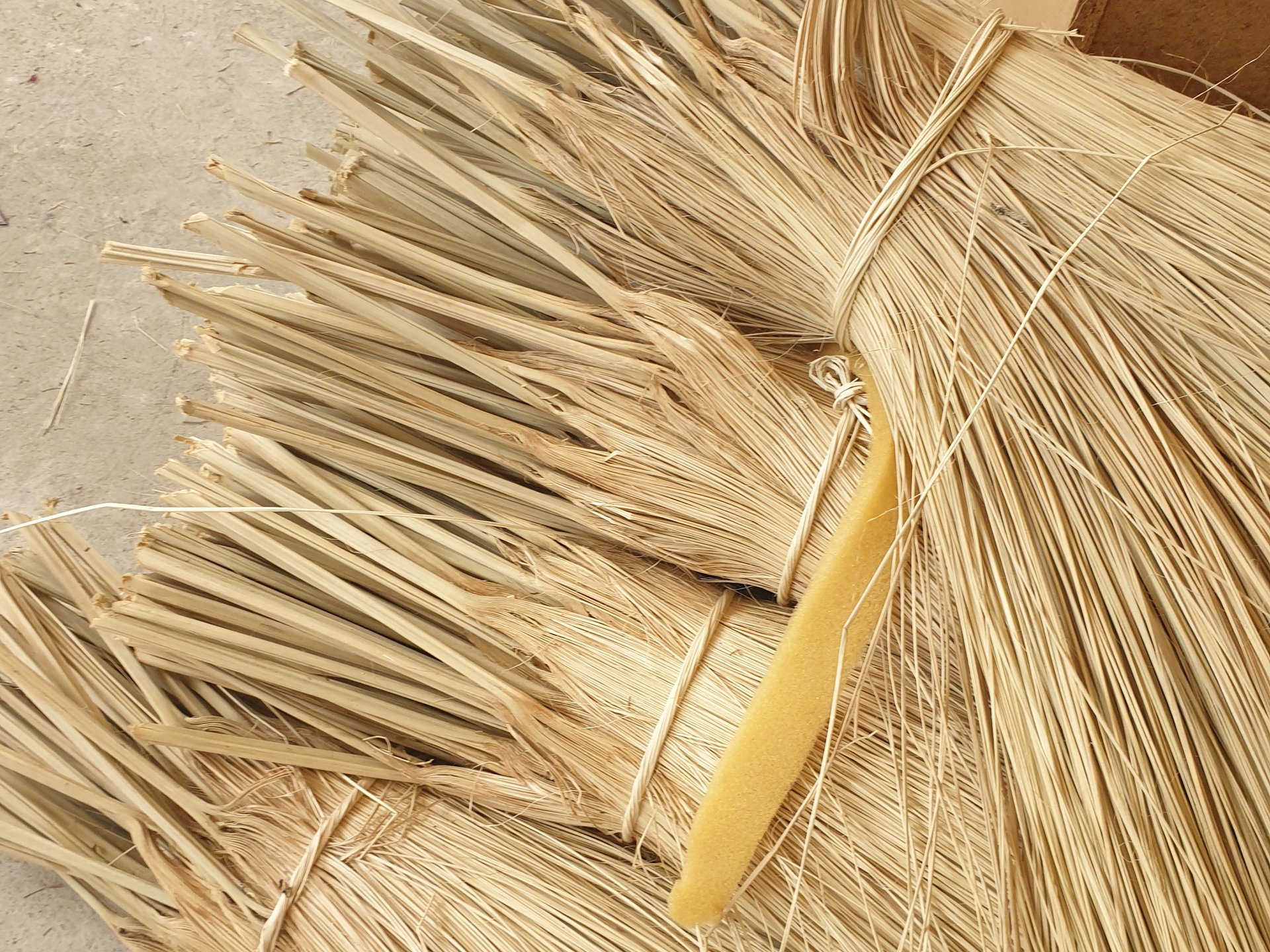
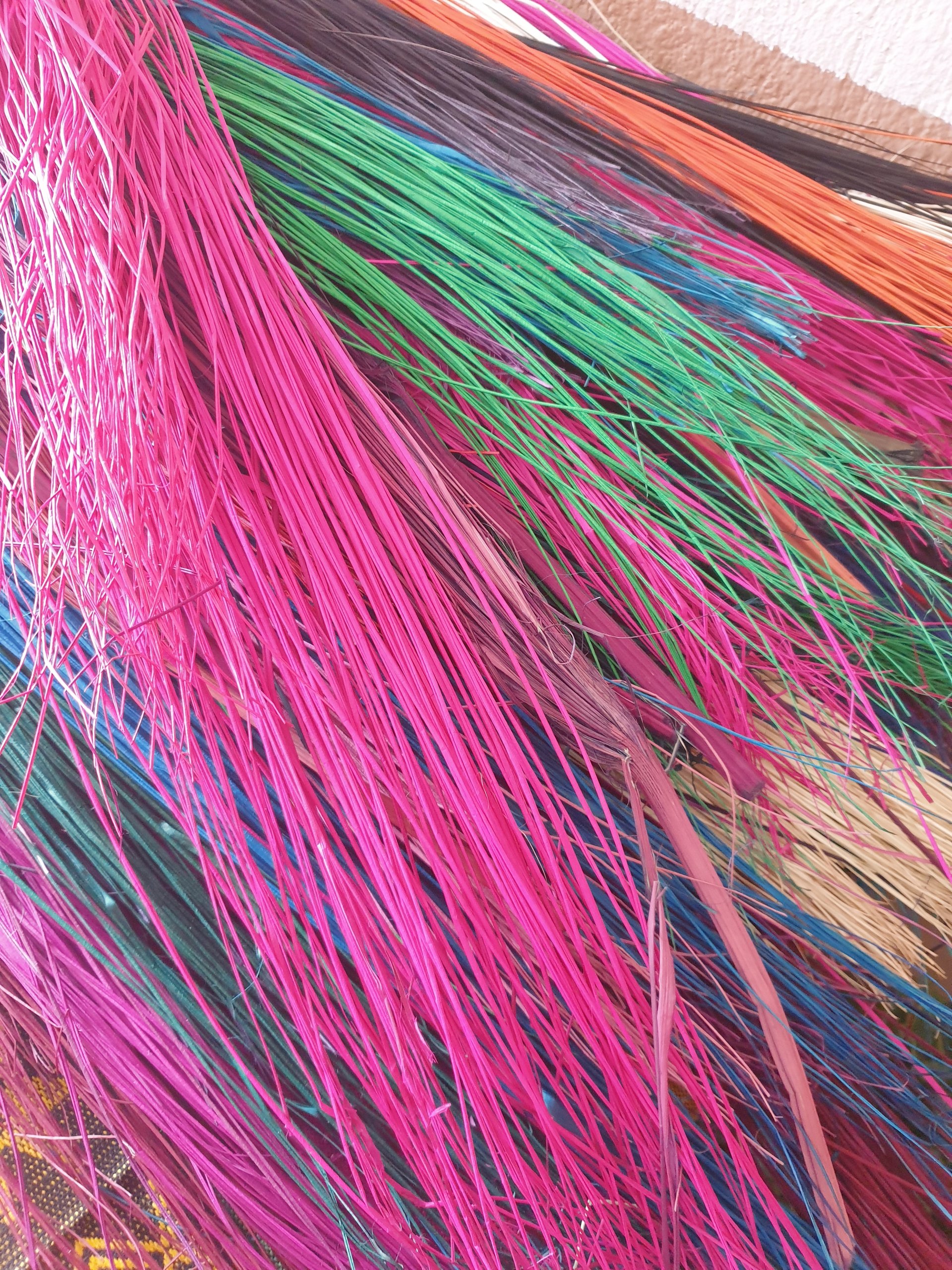
NATURAL COTTON
The shigras bucket bags are woven from natural cotton fibre with touches of colour in sheep's wool.
The materials are purchased by themselves from their fellow spinners, each cotton shigra is crocheted by a single woman, which can take 2-3 days.
These women not only dedicate their time to knitting, but they also have their daily errands and chores such as housework, agriculture, taking care of their children, and keeping their animals.
This work is something they are passionate about doing as it is something unique and special that has been taught by their mothers and grandmothers generation after generation
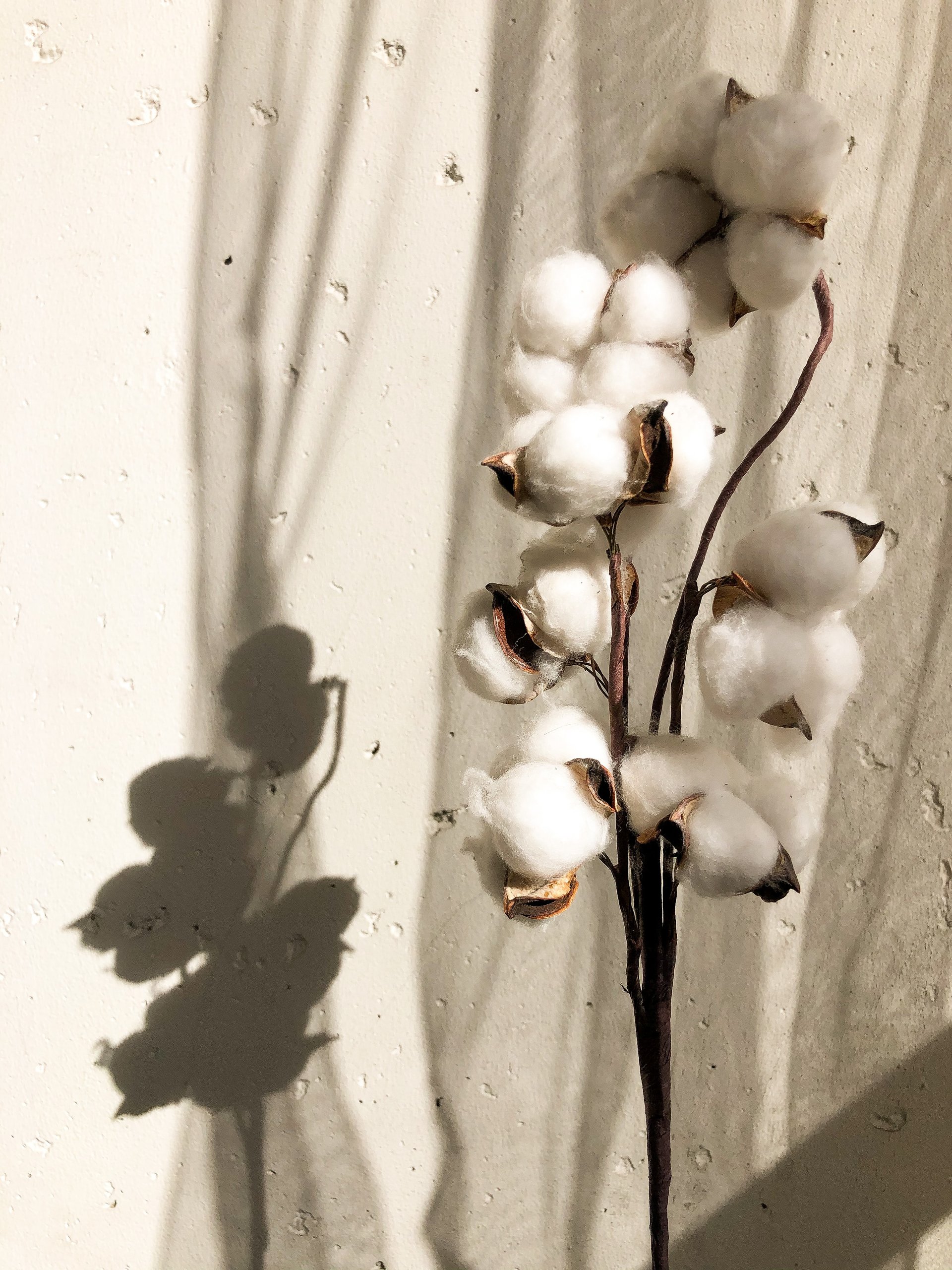
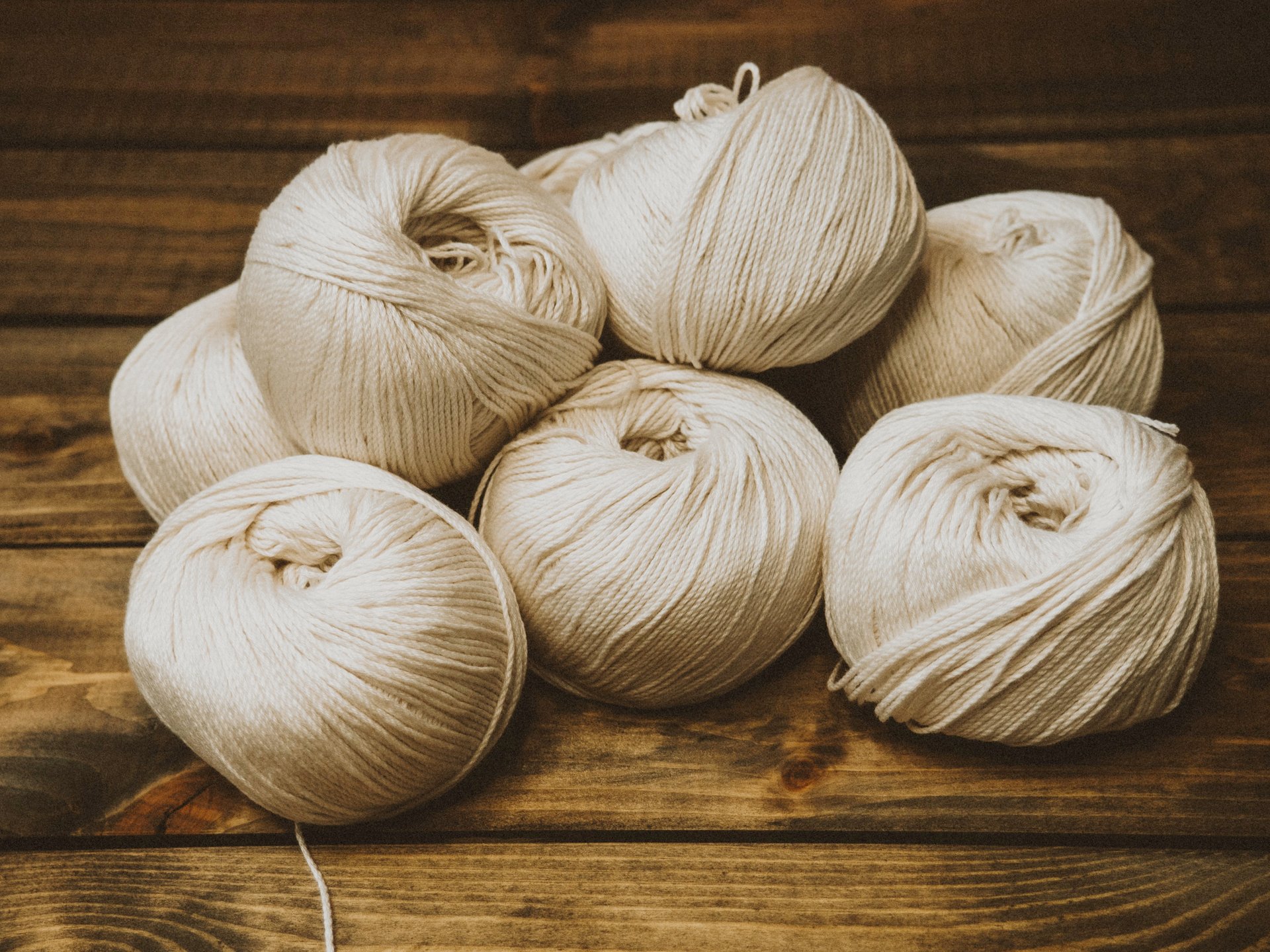
Once all the products are delivered in Quito, our artisan specialised in leather goods finishes the process. For the finishing touches we use untanned cow leather called sole, we dye it under a natural process in our artisan's house leaving it in the sun for several days until it takes the right colour.
Finally the bags board a plane and travel from mid-world to Barcelona to be delivered to our team to complete the packaging details and give you a branded experience.
If you want to know much more about our artisan partners go on Our Hands.
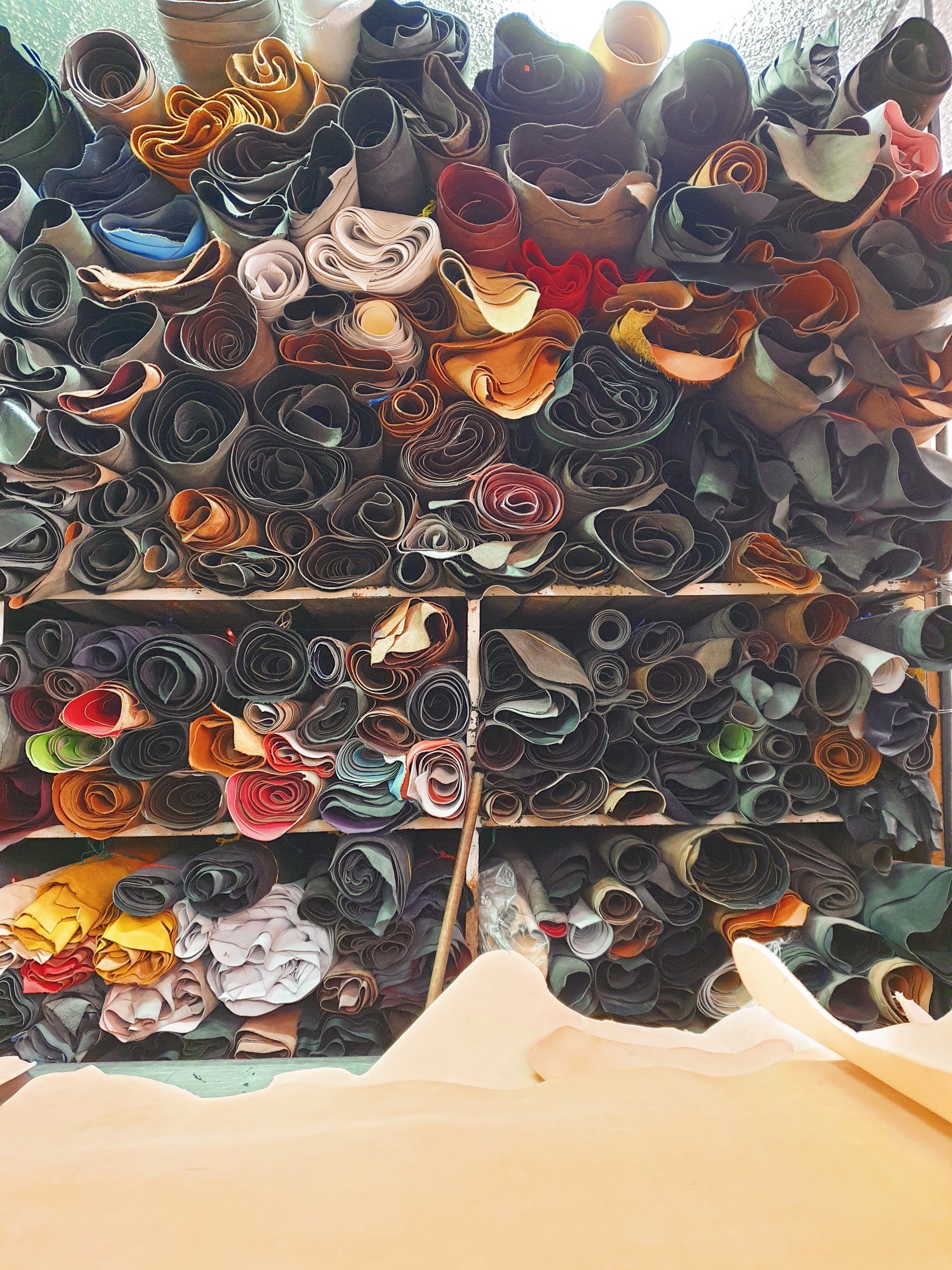
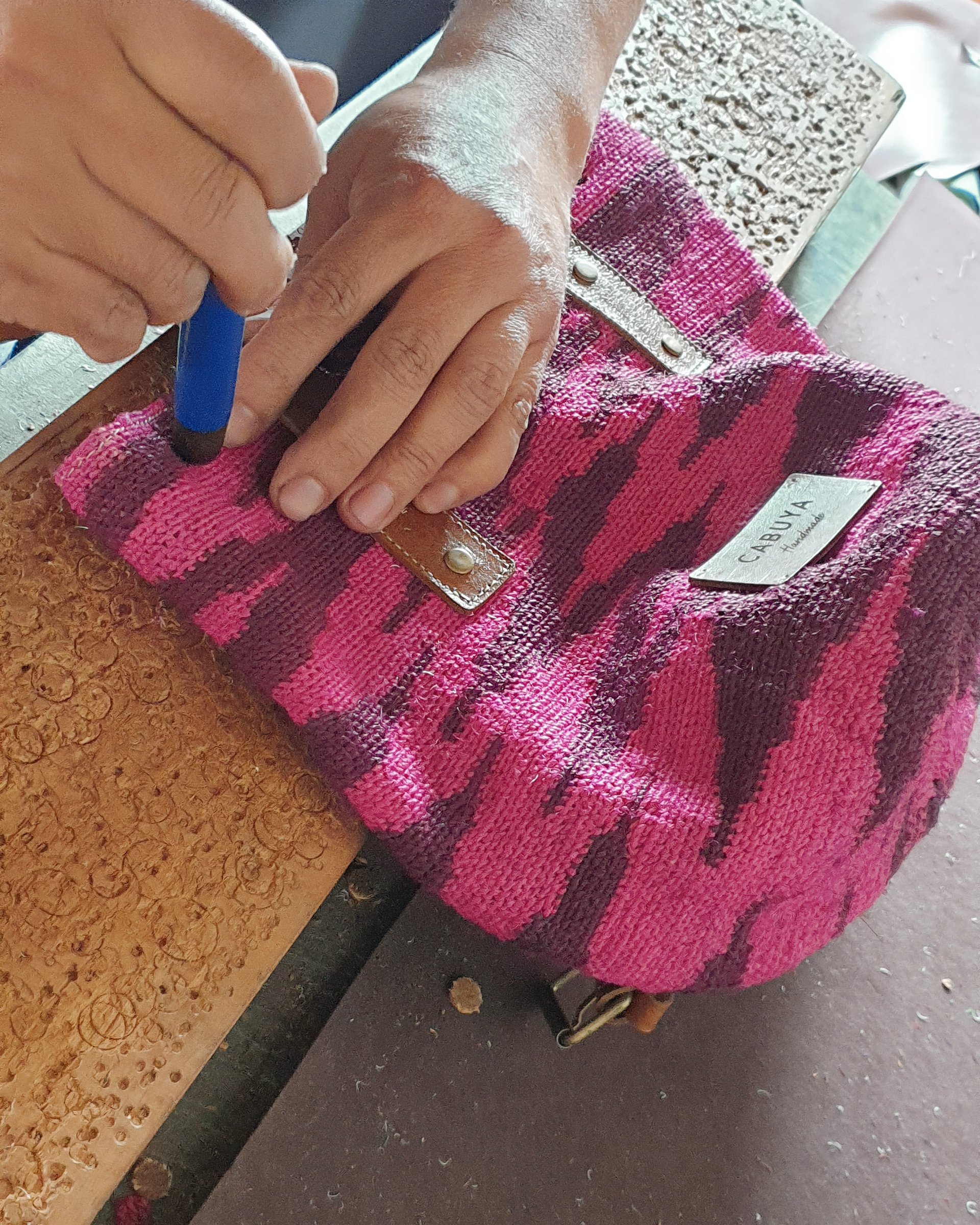
Join now!

